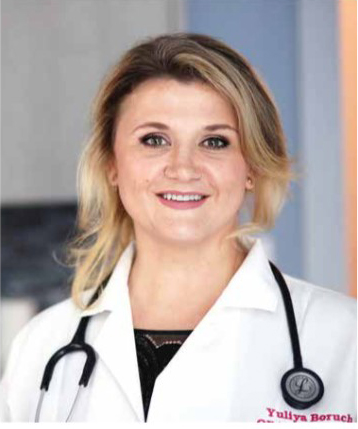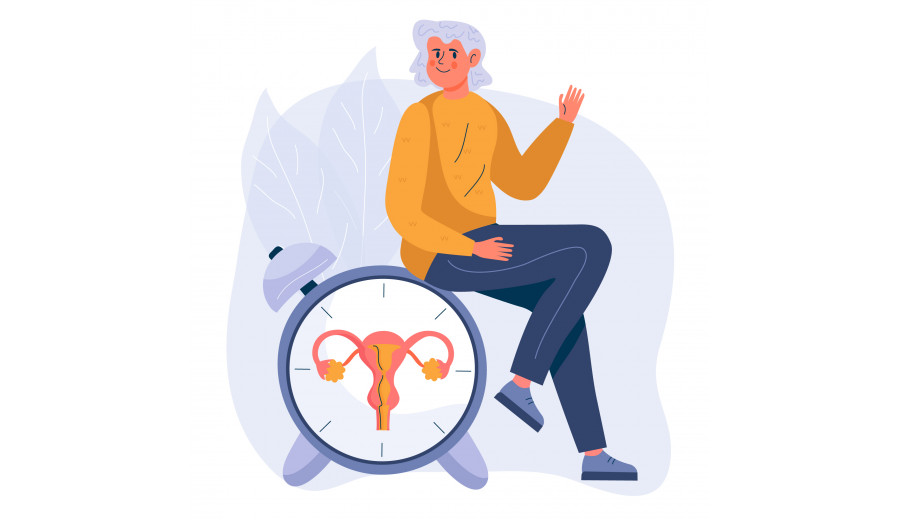Many women think if they stop menstruating or not much sexually active
– they do not need to see gynecologist.
On one side if nothing is bothering it is already a
positive sign, but women do not really need to wait for the warning symptoms of
the disease and then rush to the doctor. It
is recommended that women after 50 should see their gynecologist once a year. During
routine GYN exam, women is also screened for breast cancer, Pap smear (screen
for cervical cancer), annual mammography and, of course, STD (sexually
transmitted disease) screen (yes, in United Stated over 20% of women after age
50 return positive for chlamydia and gonorrhea).
But how about sex life? Does it really exist after
age of 50? According to the recent studies up to 70 % of women after age 50
have intimacy at least once a week; and women ages 60-70 reported sexual
activity at least once a month. So, turning 50 years old does not mean you cannot
enjoy your private life. While many women face health challenges, they age,
many still can enjoy a satisfying sex life. So, let us talk about some myths and truths.
Q: My mom is 69 years old. She is healthy
and does not want to go to a regular doctor or gynecologist. Should I insist?
A: Well, if your mom is feeling well, active and a
happy woman at 69 – it’s already good news. And she can make an informed
decision for herself that should be respected by us. However, you might discuss
with her recent health recommendations. I usually go together with my mom to
certain doctors like dermatologist. This is our «mother-daughter» time. We
visit doctor, do some blood work and necessary screening tests and then go for
dinner together.
So here is my
health recommendation list for women after 50 years old:
·
Blood work (sugar, cholesterol)
·
Check Blood Pressure
·
Vaccination (Pneumococcal, Herpes Zoster
and now COVID-19)
·
Annual mammography
·
Pap smear (screen for cervical cancer)
and STD – can be stopped at age 75. For high-risk group (strong family history
of ovarian/endometrial cancer- consider genetic blood test BRCA)
·
Colonoscopy – start at 50 (and then
every 10 years)
·
Osteoporosis screen – start at 50 (and
then every 5 years)
·
Once a year – Dermatology, Ophthalmology
and Dental
Q: I am 68 years old, and I lost my
husband 8 years ago. I do not have a sexual partner and I feel fine about it. But
I heard its bad for my health if I do not have a regular sex life.
A: It is not true at ALL. If you do not have a
sexual partner and you are OK about it – it will not hurt your health and wellbeing.
Your emotional wellbeing and how you feel about having or not having regular
intercourses is the most important. Every woman is different in her intimately
needs and there are many other ways to be happy. In some married couples,
health and the diminished sex drive are the reasons men cannot have sex.
Showing affection for each other (such as kissing or
holding hands) and mutual respect are the major drive for a happy and long
relationship.
Q: I am 55 years old. With severe hot
flashes waking me up almost every night. I am afraid taking hormones because I
heard it can cause cancer.
A: Hot flashes affect almost 60-80% of all women in
menopausal period. Hot flashes present as a sudden flow of hot air to the face,
radiating through the whole body. This can last about 2-4 minutes. For some hot
flashes appear once a day and for others every hour, making woman’s’ life
intolerable. While there are many non-hormonal options exist, the best
management of the hot flashes is HRT (hormone-replacement therapy). Yes, not
every woman can have HRTs and every woman is assessed individually since we
give HRTs for shortest period of time and in smaller possible doses. Before
initiating HRT, women can try few non-hormonal options to help with their hot
flashes:
·
weight loss, exercise, and yoga – all
help to increase circulation and help to alleviate frequency and intensity of
hot flashes.
·
over-the- counter herbal remedies such
as primrose oil, black cohosh, soy supplements, ginseng, and wild yam.
·
Increase diet with Soy-containing
products.
·
for night sweats – wear cotton night
gown and have extra near bedside along with extra bed sheets.
If all the above does not work, the next step is
FDA-approved HRT (hormone-replacement therapy). According to 2020 ACOG
statement (American College of Gynecologist and Obstetricians) HRTs are safe
and amazingly effective in managing severe hot flashes. Besides helping to
alleviate hot flashes, HRTs help in improving cardio-vascular health and
prevention of osteoporosis.
Women with
strong Family history of breast cancer, personal history of undiagnosed breast
lumps or personal history breast cancer – Are NOT candidates for HRTs.
HRTs is a combination of estrogen and progesterone.
Today we use estrogen (E2) that is exact analog that produces by woman’s
ovaries. If woman still has her uterus – we add micronized progestin to her HRT
regiment to protect her endometrial lining from estrogen overstimulation. HRTs
are coming in many different forms such as pills, patches, rings, creams, and
gels.
Also, I do NOT prescribe HRTs as a «youth medication».
This therapy is only used for symptomatic management of menopause symptoms and
not as reversing aging.
Q: I am 66 years old. Me and my husband
are still very much intimate. We use over-the-counter vaginal lubricant,
however lately it is not working. After each intercourse I have vaginal burning
and irritation.
A: Vaginal atrophy is quite common and very real
complaint of post-menopausal women. It is very bothersome in sexually active
women as well as non-sexually active. It is often presented as burning on
urination and many times mistaken for cystitis. After menopause vaginal lining
becomes thinner and dryer, leading to itching and burning and often making
intercourses painful. There are hormonal and non-hormonal ways to improve this
matter.
Water-based and silicone-based vaginal lubricants
help to lubricate vagina during intercourse to relieve extra friction. They are
not absorbed by the vaginal walls and do not provide long-lasting relief thus
has to be applied right before or during intercourse.
REVAREE – a non-hormonal vaginal moisturizer. It is
made from Hyaluronic acid (HA) that helps to retain moisture in vaginal lining
and helps with lubrication. It comes in a form of vaginal capsule and can be
used on a regular basis. The only downside is – the price. One pack of 10
REVAREE capsules cost about $40.
Vaginal estrogen – low-dose vaginal application of estrogen works fast and restore vaginal lining most effectively. Because declining estrogen levels are typically cause vaginal dryness, it makes sense that bringing levels into normal range can help to restore vaginal health.
Ladies remember! Life does not stop at menopause, so make sure you are getting women’s health care you need! Staying healthy is important for you physical, mental, and emotional well-being. You are in control and we are here to help you to achieve your maximum health no matter how private and intimate the issue might be.
 Gynecologist with 25 years of experience Dr.Yulia Borukh, DNP, CNM.
Gynecologist with 25 years of experience Dr.Yulia Borukh, DNP, CNM.
Sign up for a consultation:
124 East 40th Street, suite 203
New York, NY 10016
877-963-9777
Instagram @AskDrYuliya




















